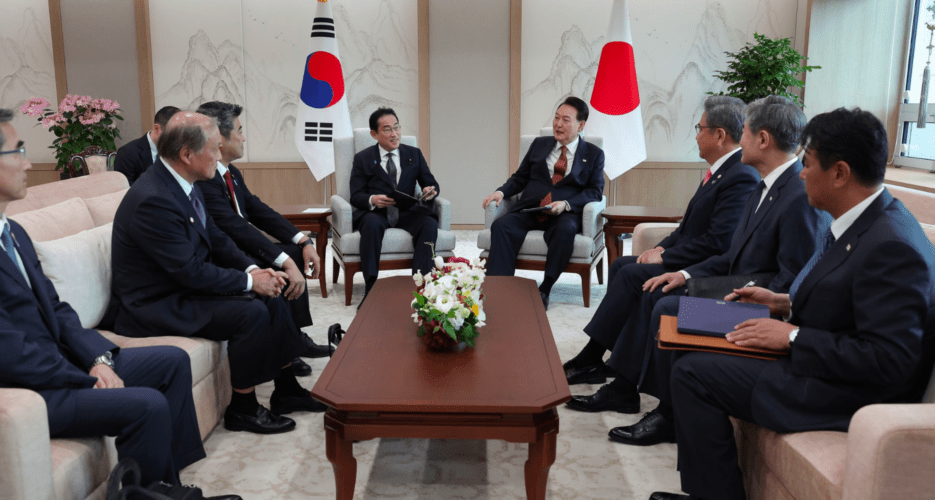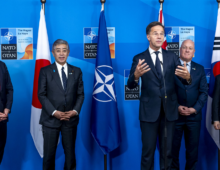Despite mending ties, public opinion unaffected by diplomacy makes summit with Kishida a political liability for Yoon
The Yoon Suk-yeol administration’s quick denial of recent Japanese media reports about Prime Minister Fumio Kishida’s visit to South Korea for a summit reflects a strategic balancing act between diplomatic engagement and domestic political considerations.
Despite the Yoon administration’s efforts to improve bilateral ties, including resolving disputes over the issue of compensating Korean victims of Japanese forced labor during World War II and participating in a historic trilateral summit at Camp David, the South Korean presidential office stated that “no relevant actions are currently underway.”
The Yoon Suk-yeol administration’s quick denial of recent Japanese media reports about Prime Minister Fumio Kishida’s visit to South Korea for a summit reflects a strategic balancing act between diplomatic engagement and domestic political considerations.
Despite the Yoon administration’s efforts to improve bilateral ties, including resolving disputes over the issue of compensating Korean victims of Japanese forced labor during World War II and participating in a historic trilateral summit at Camp David, the South Korean presidential office stated that “no relevant actions are currently underway.”
Get your
KoreaPro
subscription today!
Unlock article access by becoming a KOREA PRO member today!
Unlock your access
to all our features.
Standard Annual plan includes:
-
Receive full archive access, full suite of newsletter products
-
Month in Review via email and the KOREA PRO website
-
Exclusive invites and priority access to member events
-
One year of access to NK News and NK News podcast
There are three plans available:
Lite, Standard and
Premium.
Explore which would be
the best one for you.
Explore membership options
© Korea Risk Group. All rights reserved.
No part of this content may be reproduced, distributed, or used for
commercial purposes without prior written permission from Korea Risk
Group.












